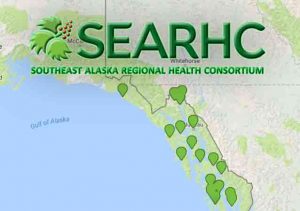 JUNEAU – The SouthEast Alaska Regional Health Consortium (SEARHC) applauded the U.S. Department of Housing and Urban Development’s (HUD) decision to require all public housing agencies to go smoke-free within 18 months. The new rule includes not only residential units and common areas, but also a 25-foot non-smoking perimeter around the buildings to protect doorways, windows, and outdoor patios.
JUNEAU – The SouthEast Alaska Regional Health Consortium (SEARHC) applauded the U.S. Department of Housing and Urban Development’s (HUD) decision to require all public housing agencies to go smoke-free within 18 months. The new rule includes not only residential units and common areas, but also a 25-foot non-smoking perimeter around the buildings to protect doorways, windows, and outdoor patios.
The implementation of this rule will protect two million Americans, across the country, from exposure to secondhand smoke in their homes.
“Few tobacco control policies are likely to save more lives than smoke-free housing,” said Edy Rodewald, SEARHC Tobacco Program Manager. “A home should be free from known risks to health, including secondhand smoke exposure. This announcement will protect those most vulnerable to the effects of secondhand smoke, including 760,000 children, more than 300,000 adults over the age of 62, and those with chronic health issues. Children, in particular, can experience long-term effects from secondhand smoke exposure including chronic health problems like ear infections and asthma, as well as more difficulty learning, lower IQ, lower math and reading scores, and more irritability and anxiety than non-exposed children.”[xyz-ihs snippet=”adsense-body-ad”]SEARHC works closely with housing authorities and other property management companies to provide resources and support for developing and implementing smoke-free policies. Alaska’s American Lung Association, in collaboration with the Alaska Tobacco Control Alliance, launched a smoke-free housing website (www.smokefreehousingak.org ) last year with a searchable database of smoke-free properties statewide. The database currently lists hundreds of units including senior housing, affordable rental properties and a variety of other units listed on the growing website. Property owners, managers, and residents can get assistance with tools and resources including sample policy language, education (resident meetings/presentations), implementation, and enforcement. This support goes beyond public housing because it’s that important. Marge Stoneking, Executive Director of American Lung Association in Alaska, said, “because there’s no effective way to prevent smoke from traveling from one unit to another, the only way to fully protect residents of multi-unit housing from secondhand smoke, is for their building to go 100 percent smoke-free.”[xyz-ihs snippet=”Adsense-responsive”]
